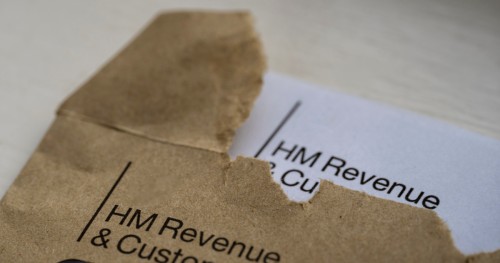The most common Self Assessment mistakes freelancers make

Few things are more daunting for self-employed freelancers than tax returns
Making a mistake on a self-assessment tax return can be both frustrating and costly. An incorrect tax return may mean submitting a self-assessment late, or getting your tax calculation wrong. This could lead to overpaying your tax bill, or receiving a fine from HMRC.
Here,TaxScouts looks at the most common mistakes made by freelancers when submitting their self-assessment tax returns, and how these pitfalls can be avoided.
A little bit of extra work and diligence now, could save freelancers time and money when it comes to paying the 2020/21 tax bill.
Registering for self-assessment
Let’s start with the basics. This is often overlooked by people earning freelance income - but did you know that anybody earning more than £1000 from any freelance work needs to register with HMRC for self-assessment?
People often confuse this with their personal allowance, which is £12,500 for the 2020/21 tax year. Even if you earn below the personal allowance threshold you still need to register with HMRC so you can declare your earnings via self-assessment
Misreporting income
The most common mistake freelancers make on their self-assessment tax return is misreporting their income. This leads to penalties and overpayments.
One of the biggest issues for freelancers is losing track of their earnings. The first rule of freelance work should be to keep proper records and invoices for all earnings throughout the tax year. If you are charging back expenses, HMRC may ask for evidence of this. Good record keeping will help you to calculate your earnings correctly, and provide any required proof or documentation to HMRC.
Penalties for misreporting income are based on the amount of tax you owe, and are also dictated by how carless HMRC feel you have been, so make sure to keep good records for your freelance income and expenses.
Properly declaring PAYE income
Even if you are a freelancer who also works for an employer and pays tax via PAYE, you still need to register for self-assessment so you can declare your freelance earnings. This is also important so you are not asked to pay extra tax.
It is important that you ask your employer for a P60 or P11D which will show how much tax you have paid under PAYE. This information will need to be submitted on the Employment pages of your tax return.
National Insurance contributions
National Insurance is calculated separately from income tax. There are two classes of National Insurance that apply to self-employed people. The class applicable to you will depend on how much you have earned in freelance income during the 2020/21 tax year:
Class 2 - profits are £6,475 or more a year.
Class 4 - profits are £9,501 or more a year.
Most freelancers will pay their National Insurance contributions through their self-assessment tax return. It is important that you factor in National Insurance when putting money aside to pay your taxes.
Save money to pay tax
The final and most important mistake freelancers make is forgetting that they need to have money available to pay their tax bill at the end of January. Payments for the 2020/21 tax year will be due by 31st January 2022.
It can be a challenge for busy freelancers to remember to put money aside throughout the year to pay your tax bill, especially if you have forgotten about national insurance. But there is nothing worse than trying to scrape together the money at the last minute to pay an unexpected tax bill.
Our recommendation would be to put aside a percentage of your freelance income regularly to go towards your tax and National Insurance bills. This can be done monthly for freelancers that are earning regular income, or after each freelance job if that fits better with your work schedule. Then, once your self-assessment has been submitted and your liabilities have been calculated, you won’t be fretting about how to find the money to pay HMRC. Remember, late payments may also incur penalties.



Comment
Log in or create your account to react to the article.